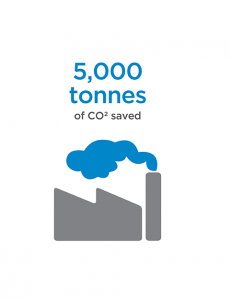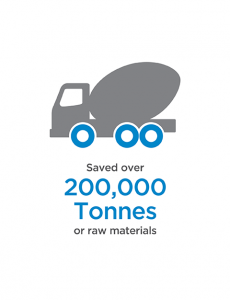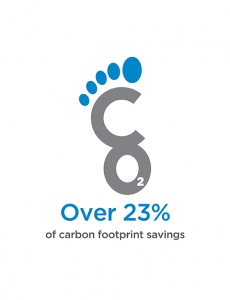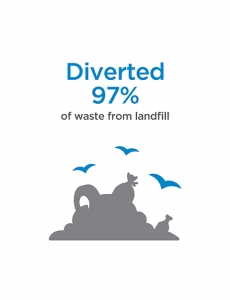Sustainable collaboration on the highway to Heysham
The pioneering collaboration between Costain and Tarmac on the construction of the Heysham to M6 link road has set a new benchmark for sustainable highways construction.
Its achievements not only include substantial headline carbon footprint savings of over 23 per cent – representing 5,000 tonnes of CO2e – and cost savings equating to approximately 11 per cent of total package value, but the key overall learnings from the relationship are already informing improved environmental work on other schemes across the country.
Critical to the project’s success was early engagement, as the supply of ready-mixed concrete (37,000 m3), aggregates (567,000 tonnes) and surfacing asphalt (140,000 tonnes) package accounted for approximately 20 per cent of the scheme’s value.
The teams implemented an innovative and wide-ranging service level agreement, which involved all elements of the working relationship.
This close collaboration allowed the firms to understand how the other operated, enabling them to plan practical efficiency savings and set sustainability targets – which identified climate change as a key aspect.
Once construction began, Tarmac’s ground-breaking ‘Carbon Footprint Calculator’ tracking service was fundamental to the project’s sustainability success, recording emissions figures and providing detailed analysis to drastically improve forecasting.
Considerable savings in the type and quality of the materials used led to a significant 23 per cent reduction in embodied carbon through value engineering compared to the project’s original outline design. This was in part achieved by reducing the aggregate tonnage by almost 25 per cent, saving more than 200,000 tonnes of raw materials.
Establishing a three-tier management structure, with team members from Costain and Tarmac represented on all three levels, was also one of the agreement’s most effective outcomes leading to an improved understanding of materials supply and delivery.
This meant sustainability initiatives were consistently driven through all levels of the scheme, for example with the quarrying process generating zero mineral wastage.
Similarly, a rigorous recycling programme diverted 97 per cent of waste from landfill, while elsewhere a robust logistics plan was put into operation to provide an optimal route to site, meaning that part loads and standing time were lowered by 88 per cent by advanced planning.
Through close collaboration to drive efficiency and reduce carbon and implementing innovative working practices, the project partners have embedded a much more resource-efficient culture across both companies and, potentially, the wider industry.
Other Innovation case studies





